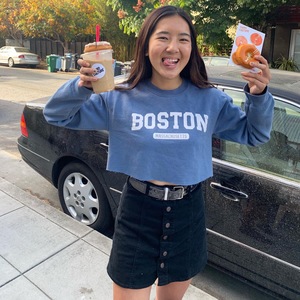To preface: I’m sorry, mom. I was making coffee (oat milk, dash of cinnamon, burning-the-back-of-your-throat hot) when one of my friends sent me an NPR podcast on hookup culture in college campuses called “Just Sex.” For the next 25 minutes, I self-reflected while sipping (read: choking) on my morning cup. Lisa Wade, a sociologist, wrote the book American Hookup: The New Culture of Sex on Campus, whose main takeaway is that hook-up culture has created a hierarchy where being emotionally unattached puts someone higher in the social pyramid.
Hookup Culture Highlight
Along with hookup culture comes the idea of trying to dehumanize the other person as much as possible. It’s better if you have no emotions; sober sex is too serious. So forget their name, and you should not try to get to know the other person at all. But behind all this is hypocrisy: many people crave the emotional connection, but everyone is scared of having emotions.
“Men are human beings and so are women. And they have all kinds of different needs that are not served by hookup culture. Hookup culture serves the stereotypical ideal of a man”- Lisa Wade
Although girls participate in hookup culture, Wade argues that it’s much more about status than about the brief, physical gratification. This generation is versed on the topic of female empowerment, but along with this concept of female empowerment comes celebrating women who succeed in roles that are typically considered masculine including STEM fields, sports, and now, hooking up.
Through enforcing the idea that sexual empowerment comes from hookup culture, we are enforcing the idea that “it’s great when you act how we think a stereotypical man does.” We view hookup culture through a white, heteronormative lens: “African-American men and Asian women are usually considered hot… the LGBT hookup scene that does exist is hyper-heterosexualized.” In short, hookup culture continues to enforce its exclusive, white heteronormativity by masking it as “empowerment.”
Veganism
Somewhere along this podcast with a half-full cup of coffee, I made the connection between hookup culture, veganism, and myself. Even though hookup culture and veganism seem so far disconnected, the hypocrisies within each one taught me about veganism. Coming to Berkeley simultaneously introduced me to hookup culture and the idea that veganism isn’t just for “earth-loving, liberal hippies.” My best friend from high school faced many “vegan jokes” for his lifestyle choice, but at Berkeley, veganism is normalized and admired rather than ridiculed.
Like hookup culture, we dehumanize the subject that we refuse to acknowledge in order to avoid facing our emotions. The idea behind hookup culture is that people “use” other people; similarly, we “use” animals for dairy, eggs, or meat. Hookup culture is very much about living in the present, and we tend to live in the present without thinking about the impact of our actions on others, our environment, and ourselves. When we eat a hamburger, we do not talk about the inhumane treatment of factory farmed cows, and when we use plastic, we never consider the environmental impact of our plastic consumption.
THE TAKEAWAY
For the last month, I’ve been eating a plant-based diet without telling anyone, and there isn’t a need for me to talk about why I decided to go vegan. I don’t think I’m the savior of the Earth for eating solely plant-based, and I also don’t think that I should be ostracized or slut-shamed if I decide to participate in hookup culture or if I decide not to. I believed I was rejecting a part of my culture through cutting out certain foods, that I couldn’t be a foodie if I was vegan, and that if I talked to someone while sober if I met them when not, I was crazy. The toxicity surrounding veganism and hookup culture comes from the same origin: hypocrisy and denial.
Who says that I can’t hook up with someone and then grab brunch the next day? Rule number 1 of “How to lose a college hook up in 10 days” says so, but this dialogue creates a hypocrisy in that if hookup culture is truly so casual, why can’t people who hook up be friends? Why are we pushing for womxn/POC empowerment while consenting to white heteronormativity? Why are we all aware of climate change but make little efforts to reduce carbon emissions?
I’m not saying that you have to invite the person you made out with at Phi Apple Pie to brunch or that you have to be vegan. I’m just laying out some food for thought, but if you would like to reflect over all of your subjectively good/bad college decisions, take this as an opportunity to form friendships, relationships, or any kind of -ship over stacking pancakes and spilling tea. As the fall semester and all the hook-ups in-between continue, let’s think more critically about how we view our sexuality and our dietary choices.


